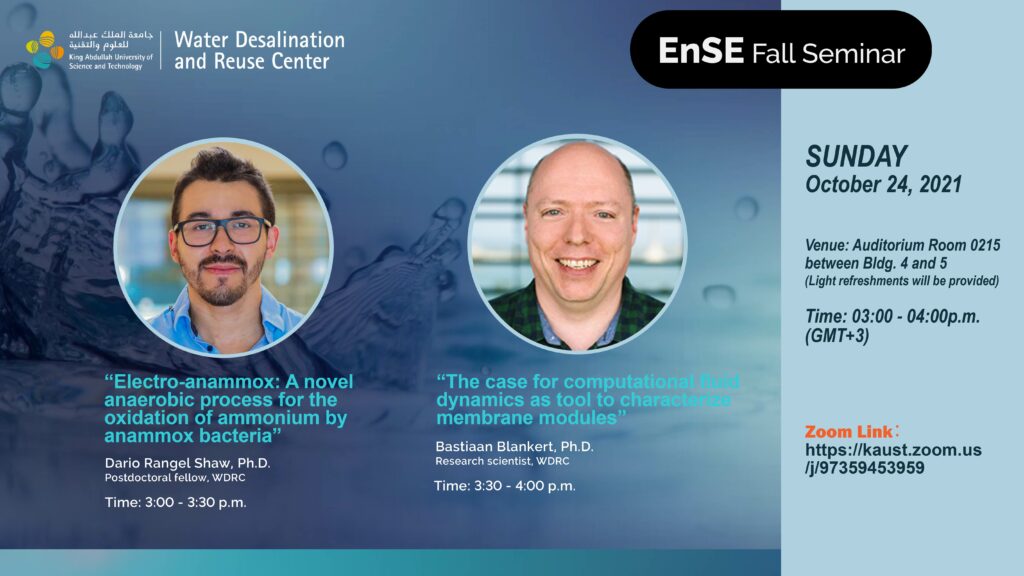
Sunday, October 24, 2021
3:00 – 4:00 p.m.
Auditorium Room 0215 between Building 4 and 5
On Zoom
Electro-Anammox: A Novel Anaerobic Process for the Oxidation of Ammonium by Anammox Bacteria
By Dario Rangel Shaw, Ph.D., Postdoctural fellow, WDRC
Abstract
Anaerobic ammonium oxidation (anammox) by anammox bacteria contributes significantly to the global nitrogen cycle and plays a major role in sustainable wastewater treatment.
In this study, we demonstrated the potential of freshwater and marine anammox bacteria couple the oxidation of NH4+ with transfer of electrons to carbon-based insoluble extracellular electron acceptors such as graphene oxide (GO) or electrodes poised at a certain potential in microbial electrolysis cells (MECs). These results suggest a novel promising process that enables removal of ammonium with high effluent quality and recovery of energy in form of hydrogen gas. For more details click here
About the speaker
Dario is a postdoctoral fellow at the Water Desalination and Reuse Center (WDRC) at the King Abdullah University of Science and Technology (KAUST). His research focuses on the microbial ecology of anaerobic ammonium oxidation (anammox) bacteria and electroactive bacteria. Because of his scientific contribution to discovering the extracellular electron transfer-dependent anaerobic ammonium oxidation process, Dario was awarded with the Soehngen Institute of Anaerobic Microbiology (The Netherlands) talent grant and the Discovery Award for best scientific paper in 2020 by the International Society for Microbial Electrochemistry and Technology (ISMET).
The Case for Computational Fluid Dynamics as Tool to Characterize Membrane Modules
By Bastiaan Blankert, Ph.D., Research Scientist, WDRC
Abstract
For optimal design and operation of membrane systems it is necessary to have a reasonably accurate model to predict their performance. One of the ingredients needed for such a model is a mass-transfer (Sherwood) relation, to describe concentration polarization. However, under certain conditions it is not possible to accurately measure mass-transfer, thus computational methods may be more suitable.
About the speaker
Bastiaan is a research scientist in WDRC. He obtained his Ph.D. in chemical engineering, and has since gained over 10 years of experience in industry doing research and engineering of membrane systems. His main interests are optimal design and operation of membrane systems and membrane fouling.

